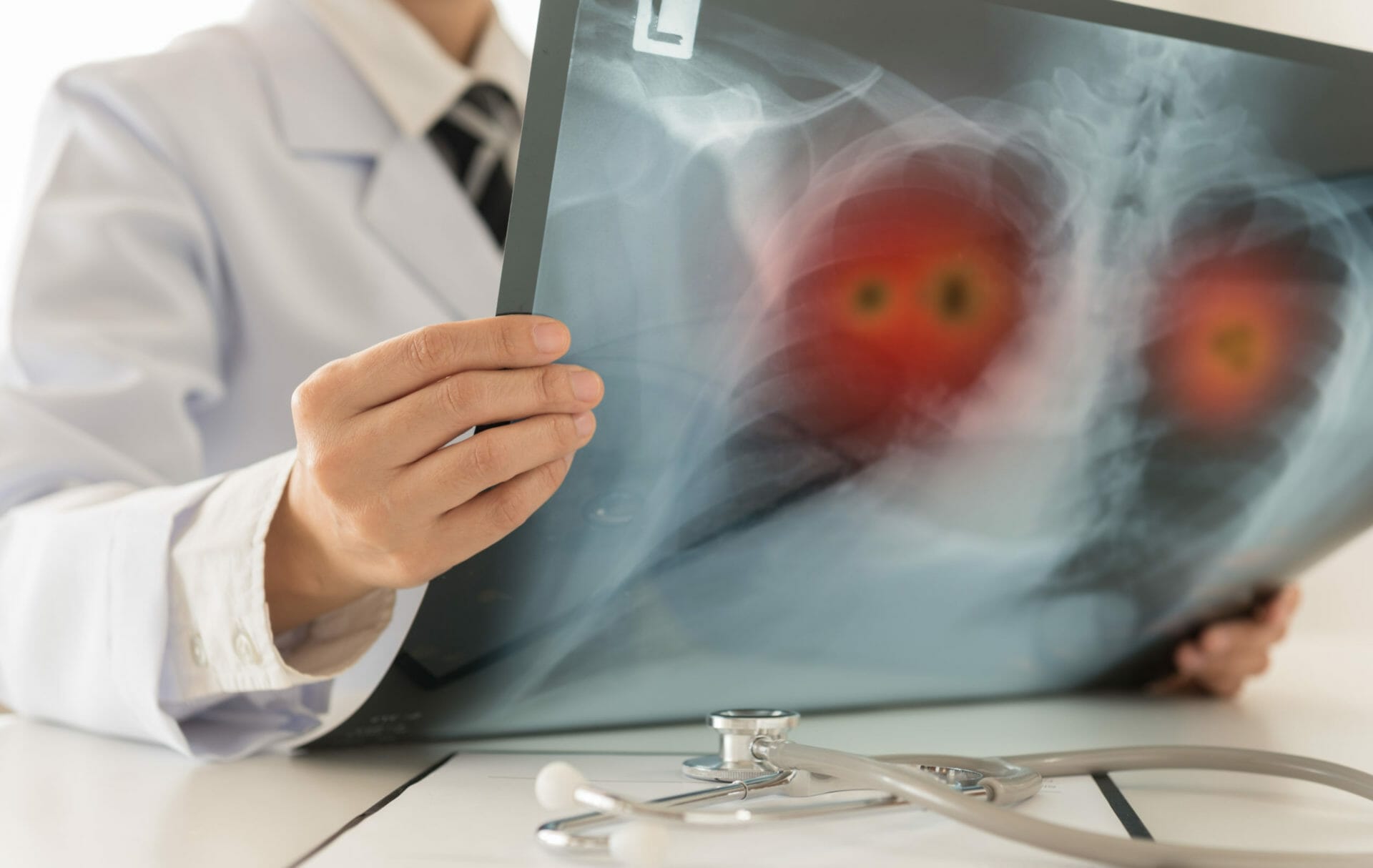Private Lung Cancer Treatment
What is Lung Cancer?
Lung cancer is a condition which involves the uncontrollable division of the cells. This causes the development of tumours which decrease an individual's ability to breathe.
There are several different types of lung cancer, including; non-small cell lung cancer (NSCLC), which accounts for over 80 per cent of lung cancer cases, and includes sub types such as adenocarcinomas, squamous cell carcinomas, large cell carcinomas; small cell lung cancer (SCLC), which makes up around 15 per cent of all lung cancer cases, and is the most aggressive type of lung cancer; and other, rarer types of lung cancer.
Symptoms of Lung Cancer
n general, symptoms of NSCLC and SCLC are the same.
Early symptoms can include; coughing up phlegm or blood, hoarseness, a lingering cough, wheezing, chest pain, shortness of breath, loss of appetite, weight loss, fatigue, weakness, and recurrent respiratory infections.
There are other symptoms which typically arise depending on where new tumours develop. These include; in the bones, causing bone pain, especially in the back, mid section and hips; in the liver, with the skin and eyes yellowing; lymph nodes, with lumps in the collarbone and neck; in the spine or brain, causing dizziness, balance issues, headaches, and potentially numbness in the limbs; and at the top of the lungs, which can affect facial nerves.
Lung cancer can cause a condition known as paraneoplastic syndrome, which can cause symptoms such as nausea, coma, seizures, fluid retention, vomiting, muscle weakness, confusion, high blood pressure and high blood sugar.Diagnosis and treatment of asthma

Causes of Lung Cancer
While anybody can develop lung cancer, some 90 per cent of lung cancer cases result from smoking. Smoke has the effect of damaging the lung tissue and making it increasingly harder for the lungs to keep repairing themselves. The damaged cells start to behave abnormally, which can increase the chances of developing lung cancer. SCLC is the type of cancer which is nearly always associated with heavy smoking.
Another cause is exposure to radon, which is a natural radioactive guess. Radon typically enters buildings through small cracks. Other hazardous substances - such as asbestos - can also cause lung cancer when breathed in over a long period of time.
Treatment options for Lung Cancer
After being diagnosed with lung cancer, you would usually be managed by a team of doctors including; a thoracic surgeon, a medical oncologist, a pulmonologist (lung specialist), and a radiation oncologist.
Treatment for NSCLC will depend on the specific condition of the individual. Stage 1 NSCLC typically requires surgery to remove a section of the lung. Chemotherapy can also be required if there is a high recurrence risk. Stage 2 NSCLC may require part or all of the lung to be removed. Stage 3 NSCLC could require surgery, chemotherapy and radiation treatment. Stage 4 NSCLC could require surgery, radiation, targeted therapy, chemotherapy and immunotherapy.
Treatment options for SCLC include chemotherapy, surgery and radiation therapy. Typically in the case of SCLC, the cancer will be too advanced for surgery to be suitable.
